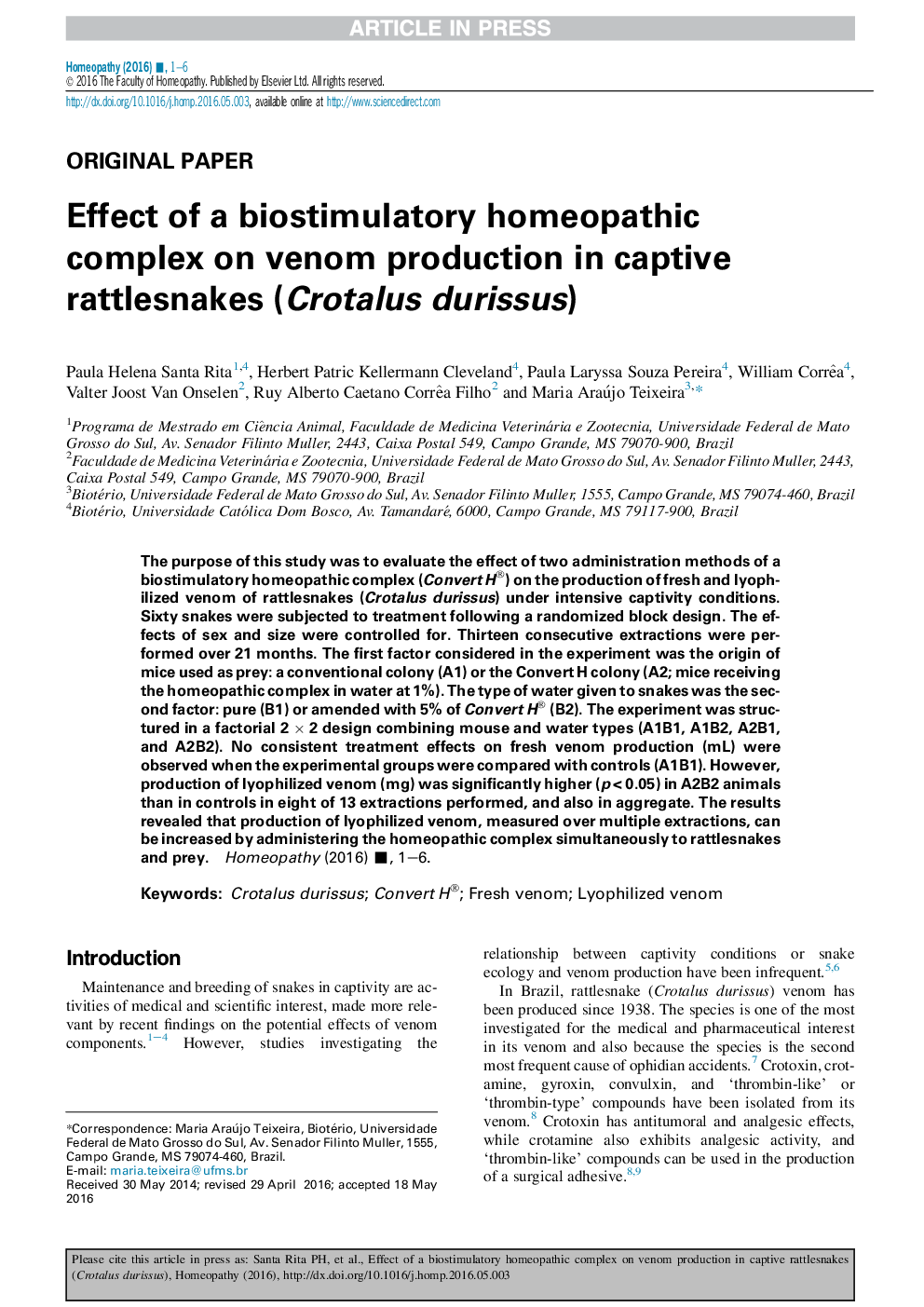| Article ID | Journal | Published Year | Pages | File Type |
|---|---|---|---|---|
| 5565308 | Homeopathy | 2016 | 6 Pages |
Abstract
The purpose of this study was to evaluate the effect of two administration methods of a biostimulatory homeopathic complex (Convert H®) on the production of fresh and lyophilized venom of rattlesnakes (Crotalus durissus) under intensive captivity conditions. Sixty snakes were subjected to treatment following a randomized block design. The effects of sex and size were controlled for. Thirteen consecutive extractions were performed over 21 months. The first factor considered in the experiment was the origin of mice used as prey: a conventional colony (A1) or the Convert H colony (A2; mice receiving the homeopathic complex in water at 1%). The type of water given to snakes was the second factor: pure (B1) or amended with 5% of Convert H® (B2). The experiment was structured in a factorial 2 Ã 2 design combining mouse and water types (A1B1, A1B2, A2B1, and A2B2). No consistent treatment effects on fresh venom production (mL) were observed when the experimental groups were compared with controls (A1B1). However, production of lyophilized venom (mg) was significantly higher (p < 0.05) in A2B2 animals than in controls in eight of 13 extractions performed, and also in aggregate. The results revealed that production of lyophilized venom, measured over multiple extractions, can be increased by administering the homeopathic complex simultaneously to rattlesnakes and prey.
Keywords
Related Topics
Health Sciences
Medicine and Dentistry
Complementary and Alternative Medicine
Authors
Paula Helena Santa Rita, Herbert Patric Kellermann Cleveland, Paula Laryssa Souza Pereira, William Corrêa, Valter Joost Van Onselen, Ruy Alberto Caetano Corrêa Filho, Maria Araújo Teixeira,
